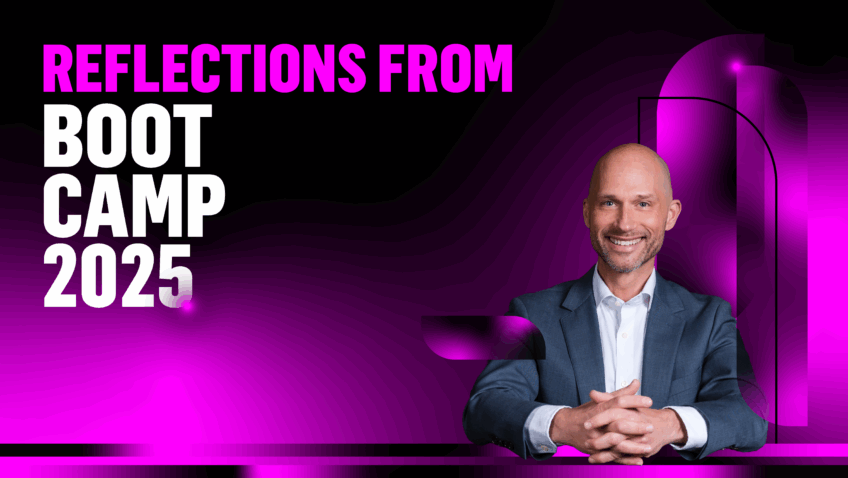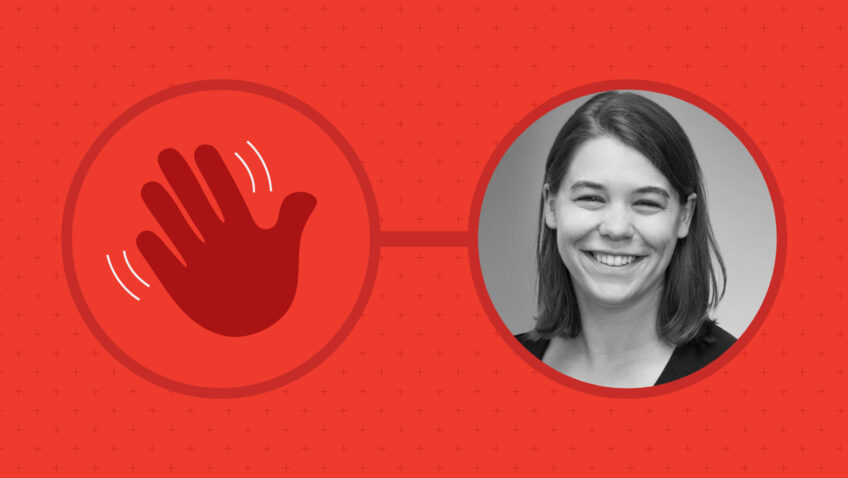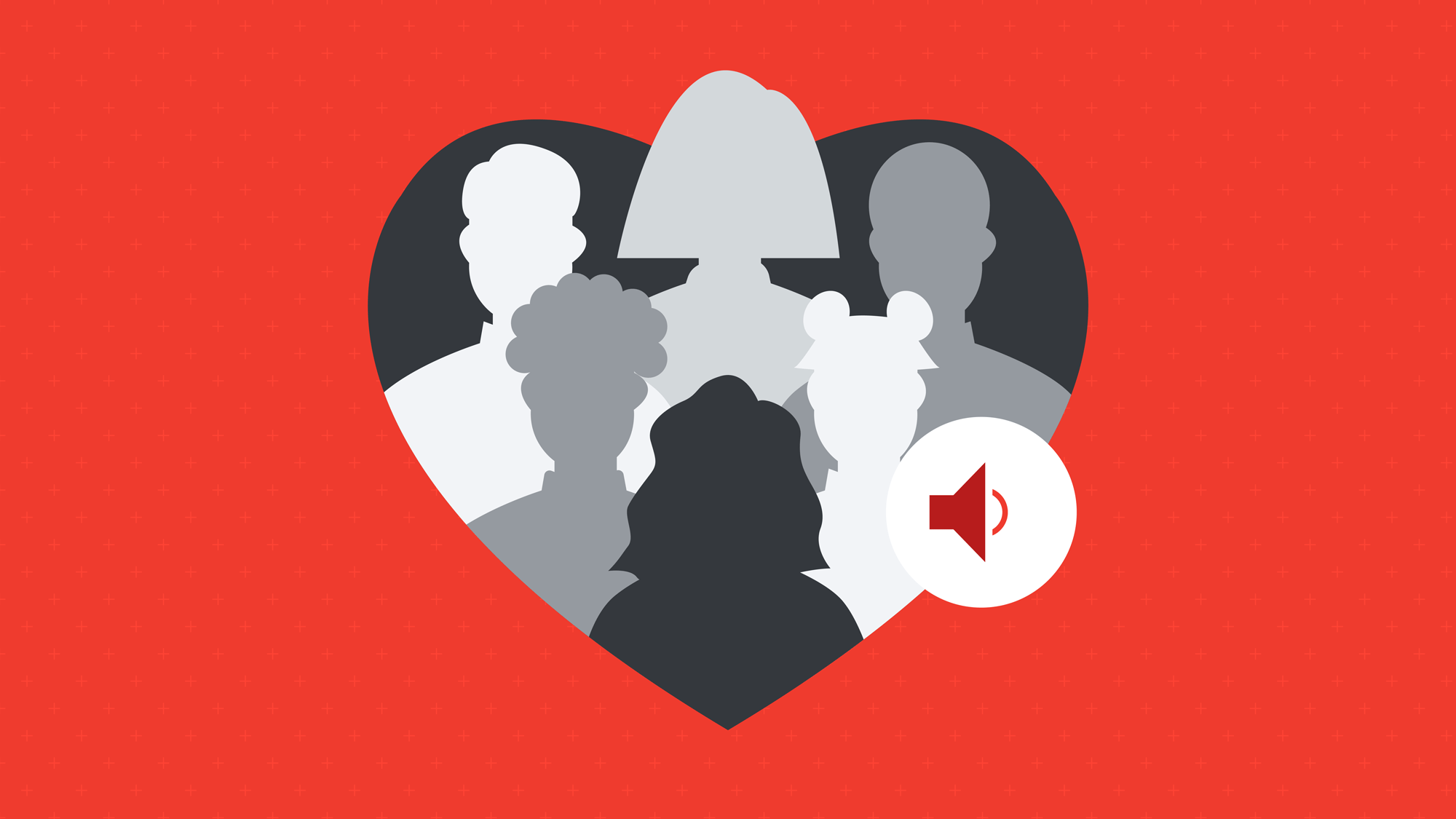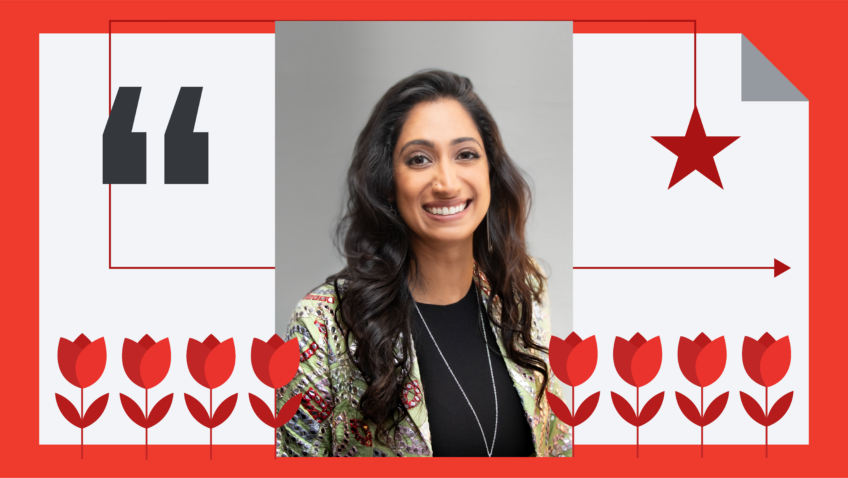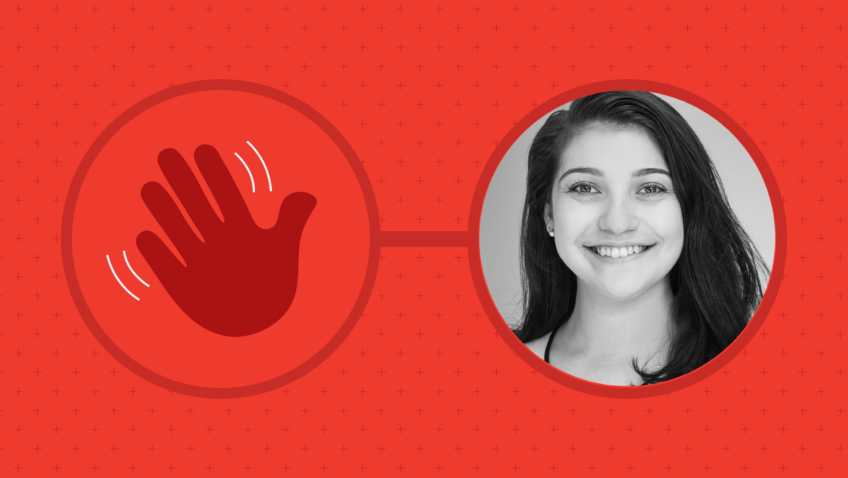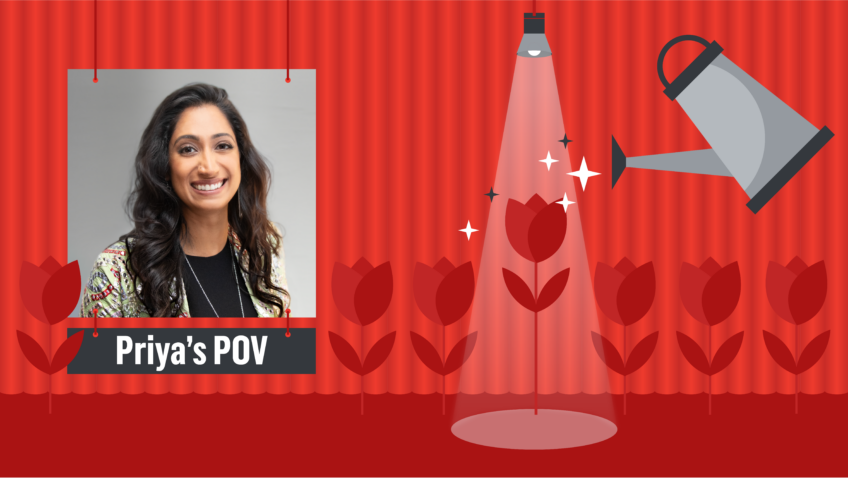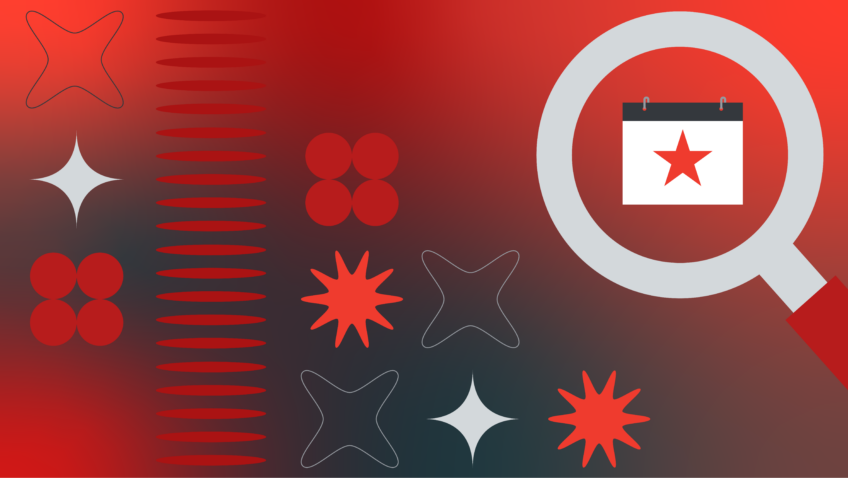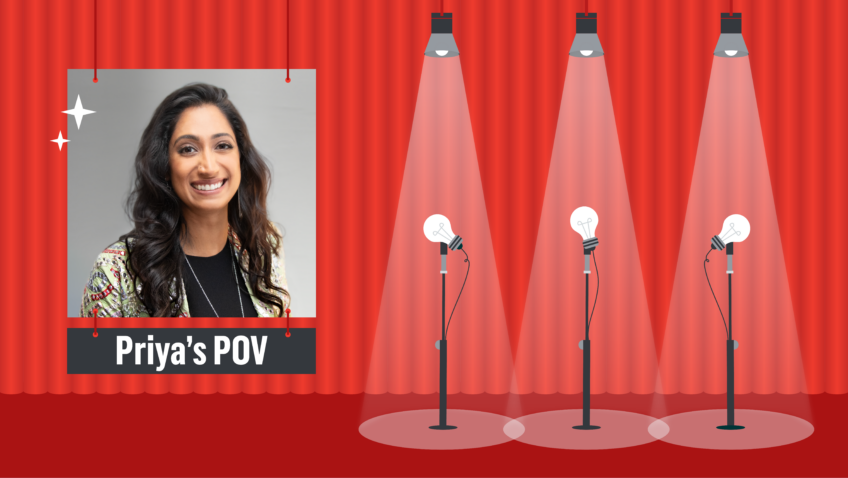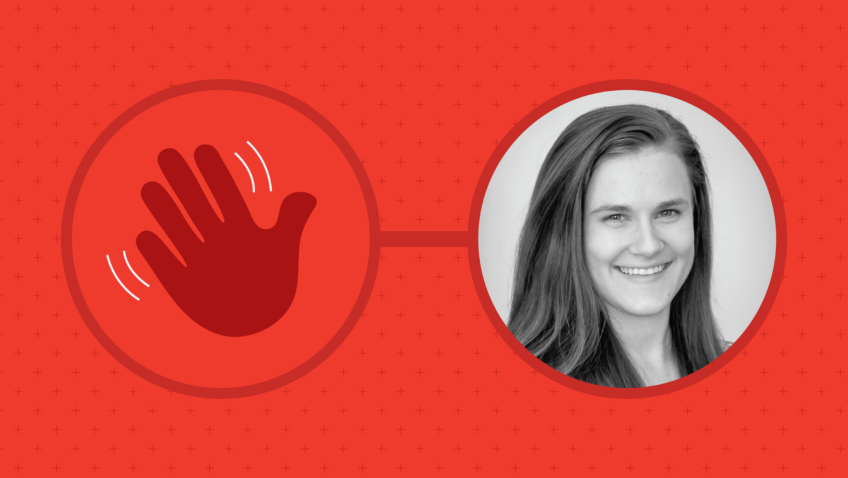Meet Sana Colter
Hi, CI
Hi, CI! is a series featuring the best team we know—the Capacity Interactive team! Today, meet Sana Colter—a lifelong music aficionado who’s mastered the flute, piano, and now dabbles with the guitar via her partnership with Fender 🤩.
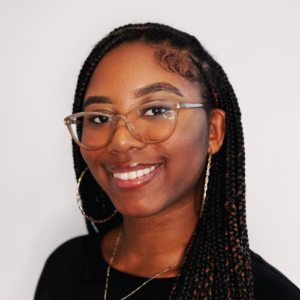 How long have you been at CI?
How long have you been at CI?
I’ve been at CI for almost two years now—1 year and 8 months to be exact!
Where are you from originally?
I was born and raised in Harlem, New York, a place rich with artistic excellence and legacy. It’s the first place where I truly began to understand and appreciate the profound impact of creativity in the community. I attended schooling in Teaneck, New Jersey and at Juilliard’s Music Advancement Program throughout my high school years.
How and when did your love for music start?
My love for music started very young because I was raised in a family where creativity was highly valued. My mom is an author, and my grandmother would play WBLS radio every morning as part of our daily routine. Growing up in such a space, an appreciation for the arts was simply part of life.
Even before I started any formal training, I had this deep desire to not just listen to music but to be involved with it—to play it, to feel it. As a child raised by a single mother, music lessons were out of the budget, but every Sunday after church I’d ask around to anyone who would listen if they could teach me piano. One day, someone said yes and began teaching me a song every Sunday after service.
Fast forward to a year later, my school music teacher recognized my passion and offered me after-school lessons. I can still remember how excited I was, fidgeting through class and watching the clock, just waiting for that moment to run to her classroom for my lesson. In 4th grade, I was overjoyed when I got the chance to join the school band. I chose the flute—an instrument my mom had played in high school, too. I vividly remember the two of us sitting at the kitchen table for HOURS with my rental flute, trying to get that first note out.
Thanks to the unwavering support of my family and community, I was able to pursue a music career I never thought possible. I went on to attend Juilliard’s Music Advancement program and graduated from Rutgers University’s Mason Gross School of the Arts with a degree in Music Performance and Music Technology. I’ve performed on various stages and shared my musical compositions on social media (tune into my feature in NBC about my social musical series here), reaching heights I could only dream of as a child.
Besides the flute, do you play any other instruments?
I primarily play the flute and piano and I’ve been playing for over 15 years. However, I recently worked with Fender, a company that manufactures and sells musical instruments and amplifiers, including guitars, basses, and amps. I connected with them a few years ago through a content creation partnership to promote their online guitar learning platform, Fender Play, and was gifted an acoustic guitar to share and document my educational journey. I’m now revisiting learning how to play and am so excited to add it to my instrumental portfolio! It’s also always been a dream of mine to play the cello (Yes, a woodwind player wanting to explore the string world!), and while the guitar and cello have different fingerings, I see the guitar as a natural bridge to the string family.
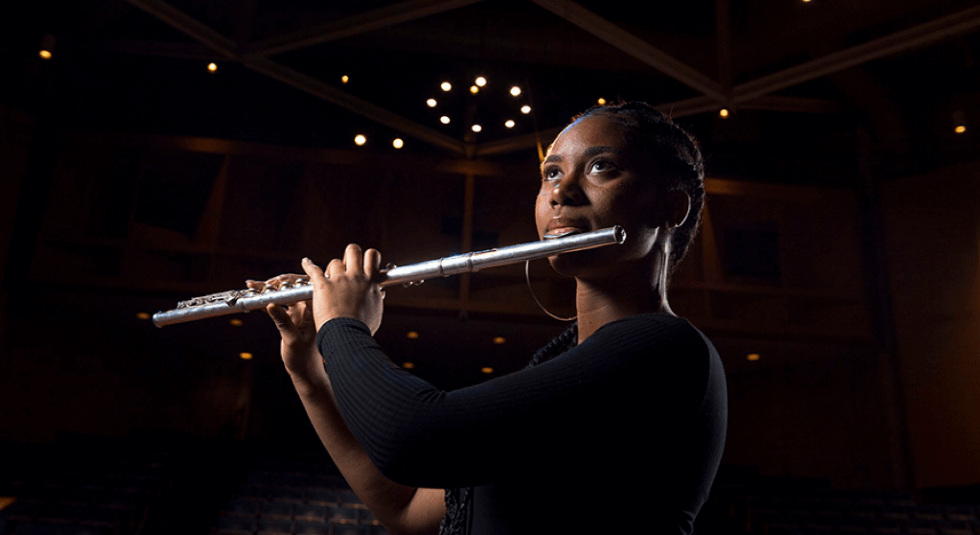
What is your favorite music genre?
My absolute favorite genre is house music—a genre of electronic dance music characterized by a repetitive four-on-the-floor beat and a typical tempo of 115–130 beats per minute. Growing up, I remember being fascinated by how the older generation in my community connected with this primarily instrumental genre. House music, with its minimal lyrics, often carries repetitive messages of freedom, joy, or reflection, and the music itself feels like a celebration of movement.
As a musician with a deep love for genres that defy simple categorization, house music speaks to me because it encompasses elements of jazz, world music, classical, and more. I’m also captivated by how house continues to evolve, especially through global subgenres like amapiano, which I’ve been really into lately!
How does it feel when you compose music?
Both composing and performing music allow me to enter a meditative state and gain a deeper understanding of who I am at that moment. When I reach that meditative state, I can explore how I want to express that feeling musically to the world or how to communicate to the world with no words the emotions and narrative I’m wishing to share, which could be understood as heightened intuitiveness. That feeling is paired with boundless possibility and curiosity of knowing that the world is my playpen and that every sound, every rhythm, and every paired combination has the potential to evolve and expand into something new every time I approach it.
Funny enough, my favorite piece that I’ve composed was written during one of the most artistically challenging times of my life. While I can’t speak for us all, I will say that many creatives can relate to experiencing a period where you feel less connected to your art or less excited about your creative developments. This is often described as writer’s block, creative fatigue, or maybe even burnout. This is what I was experiencing when my dear friend and filmmaker, Imani Celeste, approached me to compose music for her film, City of Dreamz. The piece doesn’t have a title, but it’s a musical accompaniment written for a string ensemble with a saxophone soloist during a scene about love and self-acceptance for an LGBTQ character in the film. This film has since premiered at the Palm Springs International Film Festival, Harlem Film House, New York Latino Film Festival, BlackStar Film Festival, and many more with my composition being played at venues across the country. This composition is my favorite because it was born during a challenging period of my artistry and truly is a product of my resilience and dedication to my craft, even during times when inspiration doesn’t flow as seamlessly.
how can readers follow your musical journey?
You can follow along on the latest advancements of my creative journey on Instagram and TikTok where I perform and share educational content!
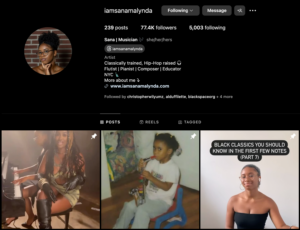
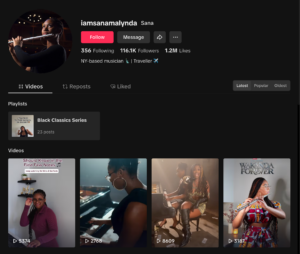
If you could only ever watch one movie again for the rest of your life, which would you choose based on the score?
This is such a hard question because I’m such an indecisive person when asked for my “favorite” anything—from books to TV shows to food. The closest answer I can give is that I am a huge Hans Zimmer and John Powell fan. Both film composers have written the most outstanding compositions for films, especially animated films, that have spanned from my childhood to now. If I had to choose, I would say The Lion King (Hans Zimmer) and How to Train Your Dragon (John Powell). I am a firm believer that movie scores for animated films are some of the best ones out there. The ability to capture the colorful nature and broad emotional range of those types of films and also capture the hearts of audiences across age groups requires such skill and a heightened sense of imagination.
What’s your favorite WFH hack?
The flexibility to work from anywhere is the best part of #WFH. My favorite hack actually takes me out of the house—working from the library once a week. The quiet, focused environment of local libraries provides a great change of scenery, and it’s highly underrated as a workspace!
What was your experience like working in arts administration at the New York State Council on the Arts? Does it influence how you approach your work at CI?
I have so much love for my previous job at the New York State Council on the Arts (NYSCA). I started there as an intern working in various arts departments and eventually became their Executive Office and Communications Assistant. My time at NYSCA allowed me to learn more than I could have ever imagined about the ins-and-outs of arts organizations like how they function, the challenges they face, how they’re funded, and how big their impact is. NYSCA was my first job in arts administration and the work we did every day furthered my belief that whether you’re the artist on the stage, the crew behind the scenes, or the administrator further supporting the creation and success of an artistic experience, there is true value in every position. My experience at NYSCA has allowed me to be more human and empathetic with arts organizations. Every interaction shouldn’t be treated like a business transaction because they aren’t just entities, but human beings operating behind the scenes with passions and dreams of impacting their communities.
What do you love about working with arts organizations?
What I love most about working with arts organizations is that at the core of it all, we’re united by our belief in the power of art. Whether it’s to connect, inspire, or create meaningful experiences, we’re here for the same reason—the art. Many of the arts organizations I’ve worked with are run by former artists, and as a current artist myself, I deeply value that shared understanding and passion. It’s incredible to be part of a community that’s as invested in the creative process as I am.
What’s something about your job that makes you excited to come to work every day?
What excites me most about my job is the people—the incredible colleagues I work with every day and the clients we serve. There’s something truly special about collaborating with individuals who share the same level of passion for both marketing and the arts. It creates an inspiring environment where creativity, innovation, and genuine excitement are part of every conversation.
While my previous roles were primarily music-focused, working at CI has allowed me to see a broader spectrum of the arts. I get to connect with clients who are deeply invested in their work, and it’s motivating to help them elevate their impact and reach. That shared passion for the arts, whether it’s music, theater, dance, or visual art, makes every day feel like a new opportunity to contribute to something meaningful.
What’s one tip you can give to help arts organizations market smarter?
One key tip for arts organizations is to embrace storytelling in your marketing. People are drawn to the human experience behind the art. Whether it’s the story of your organization’s mission, an artist’s journey, or the impact of a particular performance, storytelling helps connect audiences on an emotional level. In a world saturated with content, the organizations that highlight their unique narratives stand out and build stronger connections with their communities.

